The five books you have to read in March
This month’s must-reads: George Saunders’ novel, an argument about humanness, a First Nations Holden Caulfield tale, and more
Share
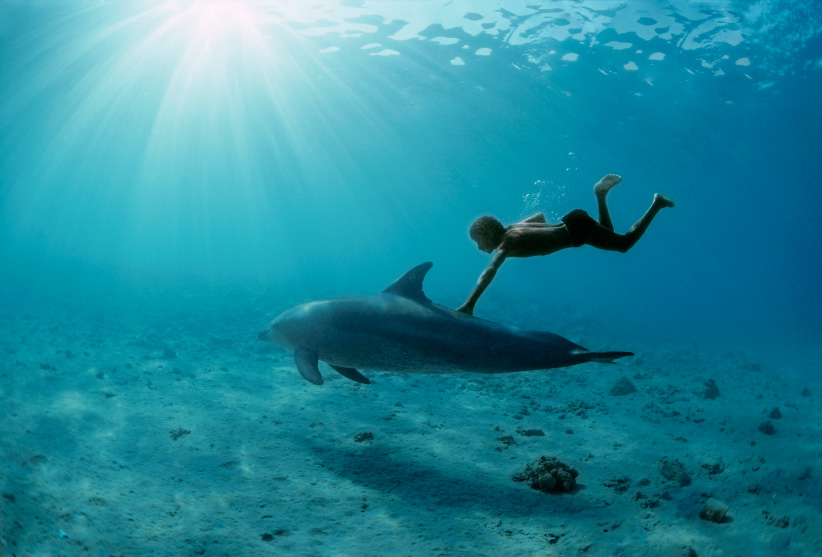
This month in book reviews: An iconic short-story author pens an ambitious first novel. A resolute defence of “cognitive dualism.” A deeply clever debut that makes good on an interesting premise. A B.C.-set start to a trilogy with a breathtaking mythical narrative. And a new, intriguing puzzle piece of a wider series. Read more below and check out the rest of our book reviews.
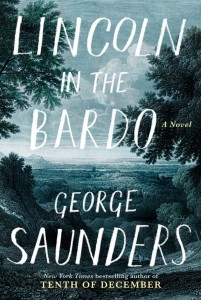 LINCOLN IN THE BARDO
LINCOLN IN THE BARDO
By George Saunders
Despite large parts of it being written in script form, this Dante-esque first novel from the American short story master poses major filmmaking challenges, including the fact that one of its main characters always appears nude and sports a prodigious, swollen member. As a result, perhaps, Saunders’s audiobook publisher has assembled a staggering who’s who from Hollywood and the arts to voice the novel’s cast of 166 characters, themselves representing, in status and diction, a symphonic swathe of 19th-century American society (though even the largest symphonies rarely have more than 120 players).
It’s set in 1862, on the night following the death, by typhoid fever, of Abraham Lincoln’s 11-year-old son, Willie. Like the shades that assemble around him, Willie is unaware that he’s stuck in a form of limbo (known, in Tibetan Buddhism, as the bardo). Believing the young “are not meant to tarry,” two among their ranks decide to help Willie get to a better place: Hans Vollman, who died without consummating his marriage to his young bride (hence his perpetual state of tumescence), and Roger Bevins III, who slit his wrists over unrequited love for a male schoolmate, and now manifests as a disembodied collection of eyes, noses and hands. Willie’s spiritual champions become further convinced of his specialness after Lincoln comes to the crypt to cradle his son’s dead body—a scene, apparently based on fact, poignantly rendered here by Saunders.
The Civil War being as yet in its infancy, and with many doubting his leadership abilities, Lincoln and the nation find themselves in another kind of limbo, one that personal tragedy has now put in stark relief. A spiritual chicken-egg scenario arises: until Lincoln can “release” his son, or Willie elects to depart, he remains hamstrung, unable to act.
Limbo and uncertainty, political and otherwise, likely won’t pose an imaginative stretch for most readers these days. Still, Saunders exploits and explores these notions in interesting, subtle ways, as when he provides pages of clashing eyewitness accounts of the moon’s appearance on the night of Willie’s death, or descriptions of Lincoln’s eye colour.
Saunders’ performance is virtuosic—few writers can commingle social satire with wrenching scenes of paternal devotion and fart jokes as he does. This won’t surprise his legion of fans, but it should reassure those who’d started to wonder if he was spinning his fictional wheels.
—Emily Donaldson
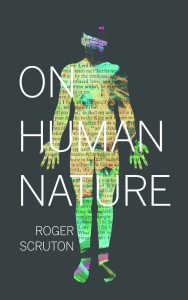
ON HUMAN NATURE
By Roger Scruton
For scientists and thinkers today, and modern materialist philosophy in general, biology is king. As described by British philosopher Scruton—who emphatically does not share this perspective—even our deepest personal attachments are seen as arising from and functioning within our “environment of evolutionary adaptedness,” while the “inflexible self-sacrifice of the soldier ant and the fear-filled and heroic self-sacrifice of the human soldier” differ only in degree, not in kind. We are, in short, the sum of our parts.
Now 72 and knighted in November, Scruton is as eminent a conservative philosopher the Anglosphere has seen since Edmund Burke. Running through his 50-odd books, including On Human Nature—a reworking of three lectures he gave at Princeton in late 2013—is Scruton’s resolute defence of what he calls “cognitive dualism.” Science is certainly humanity’s best way to describe the “how” of the universe, but there are equally valid ways of considering reality’s “why.” But his dualism is not the familiar and, for most moderns, lost-before-it-starts struggle between faith and reason.
The philosopher’s other mode of thinking is as Earth-bound as Richard Dawkins’s selfish-gene theory. Evolution did shape humanity; there is no God in Scruton’s discourse. But having pushed us into self-awareness, evolutionary selection no longer controls us. We all have a natural (not supernatural) sense of personhood that is not entirely linked to our physical identity—even if we no longer believe that memory, agency and reason can survive the loss of the body, we still accede to the idea that a human being who has lost those attributes remains a person.
We are alone in the world, Scruton writes—except perhaps, he allows, for dolphins—in our self-aware “I-to-I” relationships with our fellows. That’s why we find modern moral philosophy hollow and unsatisfactory, because it has no place at the core of our moral lives for that innate sense of human uniqueness. As he ranges across human experience from laughter to sexual ethics and the law of unintended consequences, Scruton keeps returning to that central concept: We are more than the sum of our parts or we are nothing at all.
—Brian Bethune
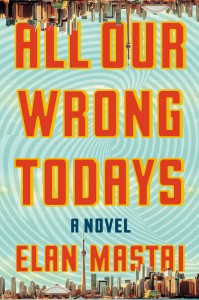 ALL OUR WRONG TODAYS
ALL OUR WRONG TODAYS
By Elan Mastai
Everything about Mastai’s debut novel is clever, starting with the premise: What if the utopian society we dreamt up after the Second World War (complete with teleportation, flying cars, garbage-cleaning robots) came true? And what if that society had then invented time travel, but screwed things up in the past so badly that humanity ended up with our flawed present-day reality?
Our hero, Tom Barren, is largely responsible for the screw-up: he’s an unambitious thirtysomething from the utopia who stumbles into a job as a “chrononaut” and unwittingly alters the defining moment that gave rise to his reality. Marooned in our present, he becomes determined to somehow atone for his mistakes and bring his utopia back into being. But in doing so (cue: ominous drum roll) he would erase the existence of a woman he has come to love.
Mastai, who earned a reported seven-figure advance for his first foray into fiction, is a Toronto-based screenwriter known for his film The F Word; in the novel, he deploys his rom-com chops with zippy dialogue and deftly drawn characters, but also manages to keep a bewildering number of narrative balls in the air. His speculative thriller meditates on architecture, relationships, the kind of world we want to live in, and even narrative conventions—Tom has a self-aware go at generic time-travel narratives and memoirs. Somehow, it all comes together, in ways that can be exhilarating, but exhausting, too.
All Our Wrong Todays is the Centre Pompidou of novels: its mechanics are deliberately exposed, so you’re constantly reminded of how it has been constructed. Even when certain sections seem to stretch on—especially the opening, with its prolix exposition—there’s always an ingenious reason why they do. Tom anticipates criticism (“I am not a genius. If you’ve read this far, you’re already aware of that fact”); nonetheless, pace Dostoevsky, it grows wearying to be trapped inside a smart, self-aware, self-flagellating loner’s head.
When events beyond Tom’s control force him to start truly interacting with people in different “todays,” the book takes off. Its braininess is balanced by moments of glittering wisdom, such as Tom’s description of having children: “creating life . . . takes every bad decision you ever made and makes them necessary footsteps on the treacherous path that brought you home.” Mastai is not only an ambitious and committed talent, but there’s a depth here that augurs well for when he’s more comfortable with the form. Would that we could jump ahead in time and read his next book.
—Mike Doherty
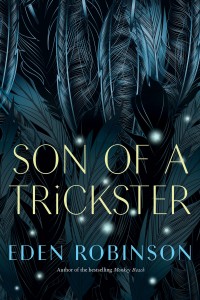 SON OF A TRICKSTER
SON OF A TRICKSTER
By Eden Robinson
Robinson’s first novel in more than 10 years adds to a body of vibrant, award-winning work that includes Traplines, Blood Sports and the Giller-nominated Monkey Beach. Once again, she uses the unique landscape of B.C.’s North Coast—particularly the Kitamaat Village area in which she grew up—and her Haisla and Heiltsuk heritage to explore coming-of-age on the reservation, and all the pain and wonderment that might entail.
The novel, the first part of a pending trilogy, conjures up the world of Jared, a tender-hearted, Grade 10 nobody whose greatest skill might be making and selling weed cookies. Despite strong efforts on his part to keep his family afloat, Jared’s life is a mess—a revolving door of abusers (physical, sexual and substance), gamers, weirdos and meddlesome grandmas, all led by his spectacularly wild and aggressive mother, Maggie. What’s more, the spirit world of polymorphic otters, talking ravens and swirling fireflies begins to infiltrate and take over Jared’s mind, his life and his community.
Robinson has a gift for making disparate elements come together into a convincing narrative, breathing myth, lore and magic into otherwise harsh realities. The novel clips along with short, pointed sentences and lively scenes of Jared’s conundrum, building in raunchy crescendo as teen anger and spirit worlds collide.
The novel has many parallels with The Lesser Blessed by Northwest Territories Indigenous author Richard Van Camp, and like that novel it also owes something to The Catcher in the Rye. Jared, like Larry Sole and Holden Caulfield before him, is a disaffected loner, but he has a unique, funny voice. The dialogue is punchy, strewn with slang and obscenity; the evocation of touth is raw and unsettling. We are reminded that dingy basements, random motel rooms and pickup trucks can be the ripe backdrops of teen maturation and epiphanies, just as Salinger used carousels, cabs and the lonely streets of New York.
Jared offers readers, particularly First Nations youth, a comrade in the angst and alienation of their experience. Eden Robinson does much to enhance the growing body of Indigenous Canadian literature, but we need even more—a least a trilogy’s worth.
—Erinn Beth Langille
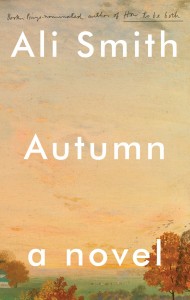
AUTUMN
By Ali Smith
Apprehension. That’s the note on which the splendid Autumn begins: “It was the worst of times, it was the worst of times. Again. That’s the thing about things. They fall apart, always have, always will, it’s in their nature.” The prolific Scottish writer, a three-time Man Booker Prize finalist, later transforms that apprehensive tone into dread, elegy, anxiety—and, fitfully, fluttering, tentative hopefulness. A quirky, cerebral, and often free-roaming novel (touching on Pop Art, The Tempest, the Profumo affair and time itself along the way), Autumn is autumnal in the sense of anticipating winter’s deadly approach, of a certain melancholy and a wistful looking back, and a knowingness about the cyclicality of, to use Smith’s word, things. In less abstract and poetic terms, Smith’s incisive novel peers into England and its immediate post-Brexit past, depicting a nation where suspicion divides communities and uncertainty about the country’s true (and future) character has citizens feeling tense and mistrustful.
In Autumn, the latter half of 2016 is marked by civic unrest: “All across the country, people threaten other people. All across the country, people told people to leave.” Conscious of newly visible actual fences and figurative borders, the narrator considers the possibility that the nation has reached “the end of dialogue.” With barriers, differences and conflict as the worrisome—and never invisible—backdrop, Smith turns her story’s attention to an unexpected and certainly out of the ordinary loving relationship.
There’s Daniel Gluck, born over a century ago. As he lies ailing and unconscious (but hallucinating) in a care facility, his mind wanders and conjures violent fantasies. Born in Thatcherite England, Elisabeth is an untenured lecturer in art history who understands the precarity of her career track. As a directionless girl with an abrasive mother, Elisabeth benefited from an introduction to and later friendship with Gluck, her elderly neighbour. In contrast to her mother’s judgments, conventionality and narrowness, he offers Elisabeth fresh, artistic eyes through which to consider the world. When she’s 14 and complaining to him about the unwelcome approach of autumn, her mentor points out aspects of the countryside, “showing her how the summer was still there.”
For much of the novel’s season of discontent, the apparent impossibility of the pair’s reconnection takes on dismaying symbolic dimensions. The first of Smith’s planned seasonal quartet, Autumn is an intriguing puzzle piece of a novel. For the whole story, we can only wait.
— Brett Josef Grubisic